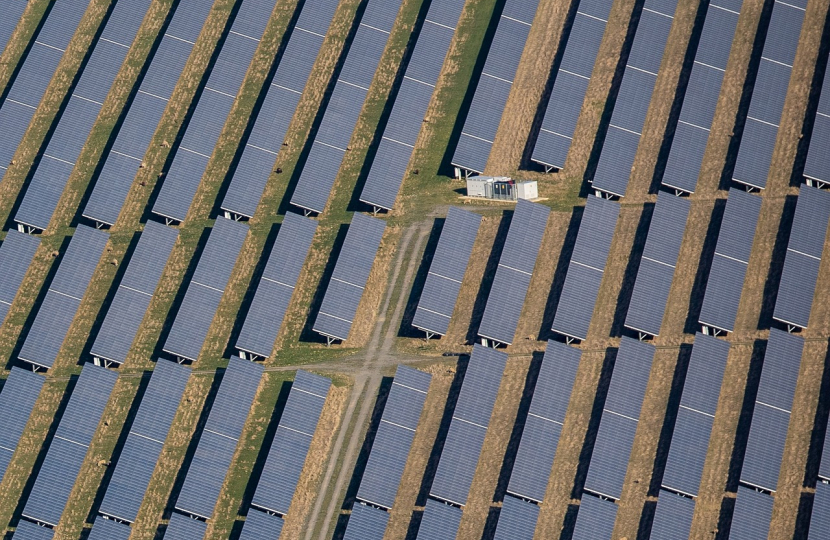
I have always believed that, when it comes to delivering for our environment, we need to consider the impacts on the local environment and the local landscape as well as the endeavour to reduce carbon emissions globally. We also need to recognise the importance of food security and the critical importance that domestic food production and agriculture play towards ensuring our national resilience. That is why I have always supported renewable energy projects such as geothermal energy and floating offshore wind where Cornwall is a leader but generally opposed industrial-scale field solar developments which trash the countryside and lead to a loss of land from food production.
A few years ago. Cornwall was blighted by many industrial solar developments in the countryside but I was involved in changing planning guidance which seemed to stop them for a while now, across the country, we are starting to see developers coming forward again which projects that are inappropriate. Last week Cornwall Council considered a planning proposal to build a very large solar installation on agricultural land near Barripper. The Planning Committee had much to consider when assessing whether the planned development was consistent with national planning policy. I was concerned that the building of a new solar farm on good agricultural land would reduce the already limited availability of high-grade horticultural soil in Cornwall. I raised these concerns with the Planning Authority and I am pleased that Cornwall Council's Strategic Planning Committee agreed and refused the permission.
The National Planning Policy Framework (NPPF) places strong emphasis on preserving our natural and historical surroundings, while also recognizing the essential contribution of BMV agricultural land to our local economies. Balancing these factors is essential when assessing development proposals, especially as we consider the deployment of renewable energy sources.
Guided by the NPPF and overarching government policies, we must prioritize the proper utilization of land resources. This involves directing our focus towards previously developed and non-agricultural areas for large solar farms. When looking at greenfield land usage, it is important to assess the necessity of employing agricultural land and, if required, to explore the option of lower-quality land alternatives. We must ensure that solar projects maintain the continuity of the agricultural activities at the centre of our communities and foster greater biodiversity in their surroundings.
I am not opposed to solar energy, I just don't think it is appropriate to have field-scale solar projects. In fact, I would be supportive of a policy that would require solar panels on the roofs of all new build properties so that our energy security could be enhanced. I also support the siting of solar panels on industrial estates. We have thousands of acres of roof space which could be used for solar energy development without having to waste fields and damage the local environment.
In addition, we need to recognise the limitations of solar energy in the UK. It would tend to give us lots of energy in the summer when we don't really need it and it gives very little energy in the winter when we need energy most. If we believe that huge field-scale solar should play a part in our energy mix, then there are some better more creative proposals. There is currently a proposal to build a huge solar farm in the desert in Morocco and then lay a large electric cable to bring the power to the UK. The advantage of this scheme is that you get light and energy year-round and you don't lose valuable agricultural land.
As a former DEFRA Secretary of State, I have always understood that most environmental policy is about striking a balance and setting a course that acknowledges competing pressures and needs. Sometimes a policy that is right for reducing carbon emissions can be wrong for biodiversity and the natural environment and we need to balance our environmental objectives against sustainable food production and the protection of our beautiful landscapes. Cornwall is a peninsula and the beauty of our landscape is always going to be vulnerable. While the threat of industrial solar developments has not gone away, the refusal of permission by Cornwall Council in this case is an important step in the right direction.

